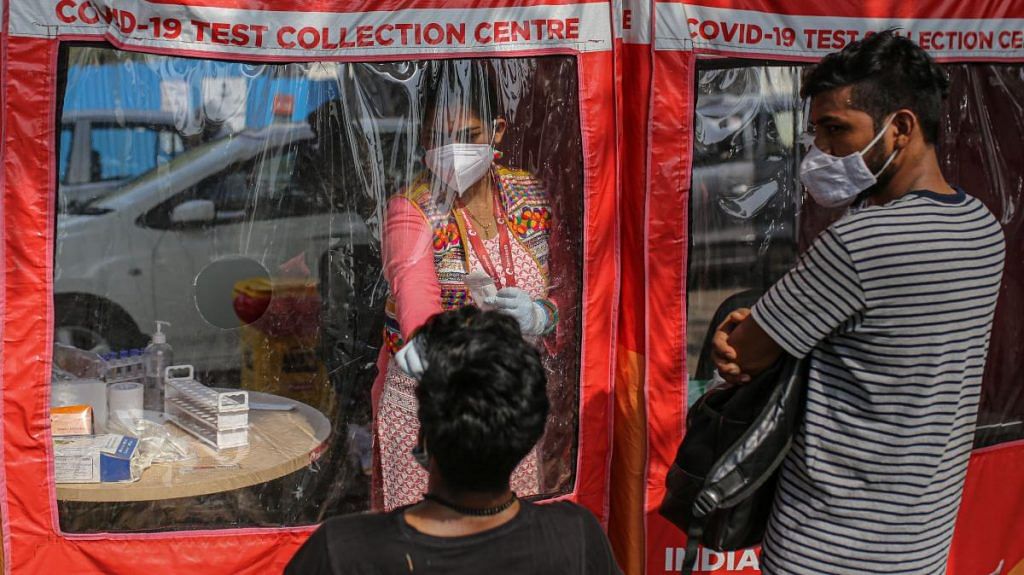New Delhi: As the Covid-19 pandemic continues, scientists are revising their estimate of how long immunity from the disease lasts after infection.
According to a review in Nature journal, we may be looking at long-term immunity, thanks to the detection of memory B cells against SARS-CoV-2 in the bone marrow and lymph nodes of people who have recovered from the infection.
Researchers from the Washington University School of Medicine have been periodically checking the immune status of infected individuals and now have data for up to one year. They found the immune system primed against future infections too.
Quoting their findings, researchers from German Rheumatism Research Centre in Berlin wrote in Nature: “Wang et al. show that, between 6 and 12 months after infection, the concentration of neutralizing antibodies remains unchanged. That the acute immune reaction extends even beyond six months is suggested by the authors’ analysis of SARS-CoV-2-specific memory B cells in the blood of the convalescent individuals over the course of the year. These memory B cells continuously enhance the reactivity of their SARS-CoV-2-specific antibodies through a process known as somatic hypermutation. The authors demonstrated this with in vitrotests of antibody neutralization of a broad collection of SARS-CoV-2 variant strains.”
Memory B cells are stored away in the bone marrow and lymph nodes that retain memory of the invading pathogen and can quickly kickstart the process of antibody formation should a second invasion happen. That also means even when circulating antibody levels are low, the presence of these cells are indicators that the immune system is ready to tackle infections and are suitably primed either by prior infection or vaccination or both.
Also read: Delta variant could cut immunity gained from prior infection by 60%, study of Delhi data finds
Single vaccine dose year after infection works
The researchers in Germany referred to the presence of SARS antibodies in the blood for upto 20 years to bolster their claim about long-term immunity from SARS-CoV-2. The two viruses are closely related.
“For SARS-CoV, a coronavirus very like SARS-CoV-2 that was originally identified in 2003 and causes severe acute respiratory syndrome (SARS), the continued presence of high concentrations of neutralizing antibodies in blood serum for more than 17 years was reported9 in 2020,” they wrote.
While natural immunity may be long lasting, vaccines can still play a role in people recovering from Covid-19 in making that existing immunity better, the researchers argued.
“Finally, Wang and colleagues show that immunity can be boosted even further in convalescent individuals by vaccinating them after a year. This resulted in the generation of more plasma cells, together with an increase in the level of SARS-CoV-2 antibodies that was up to 50 times greater than before vaccination. Some of the plasma cells will probably be recruited to become memory plasma cells, although this remains to be demonstrated formally, as does the induction of stable, long-term memory as a consequence of SARS-CoV-2,” reads the article.
(Edited by Manasa Mohan)
Also read: Covid immunity lasts for a year, vaccine boost helps fight variants, study says
